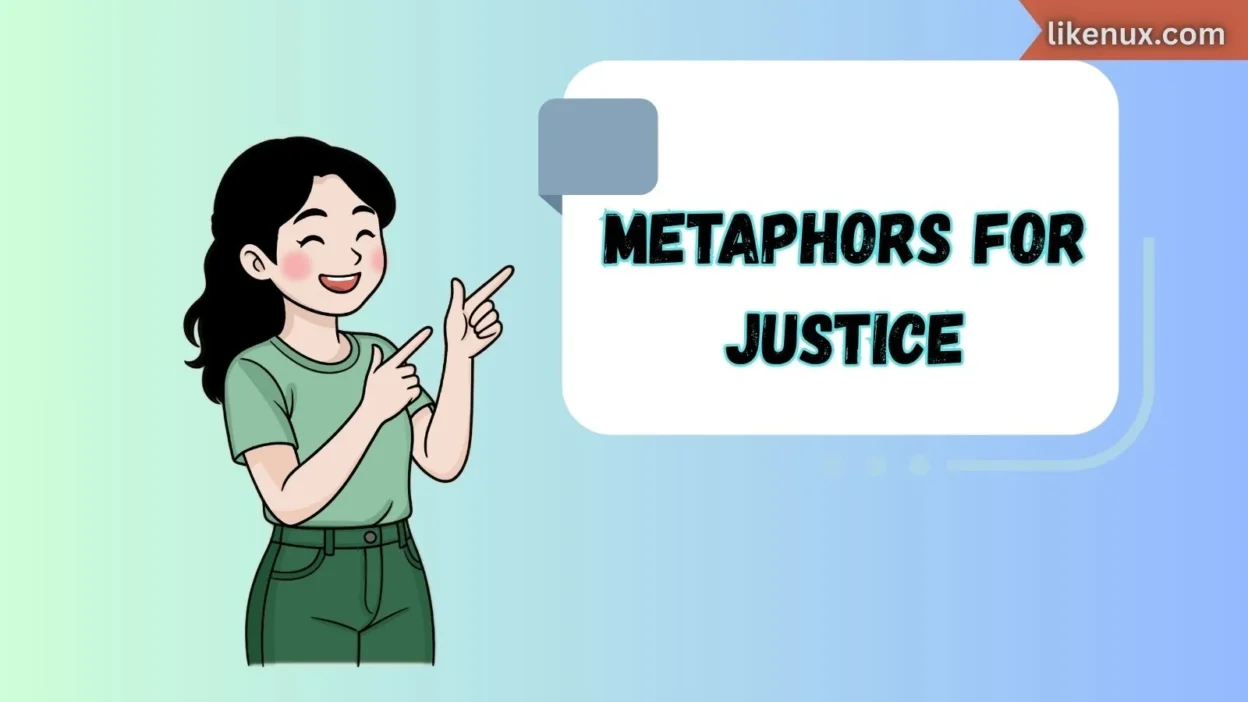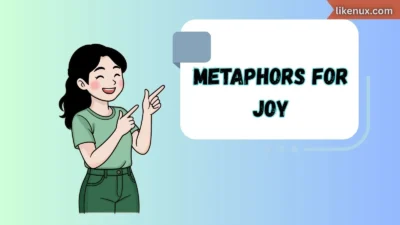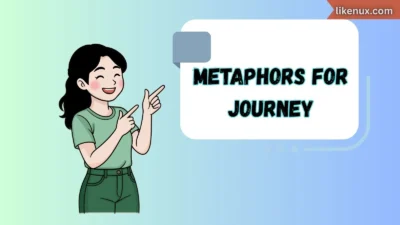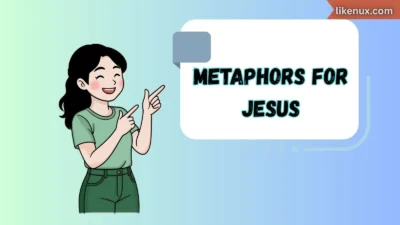When we hear the word justice, it often brings to mind images of fairness, truth, and balance. Justice is more than just a legal concept—it’s about ensuring that every person is treated with dignity, equality, and respect. At times, it can be hard to put this deep idea into words. That’s where metaphors for justice help. They allow us to paint a vivid picture and express what fairness feels like in real life.
In this article, we’ll explore 25 meaningful metaphors for justice, written in a conversational and caring way. Each section will explain the meaning, use the metaphor in a sentence, highlight the best context to use it, and suggest other ways to say it. Think of it as your personal guide to speaking about justice with warmth and clarity.
1. Justice is a Scale
Meaning: Justice balances fairness and truth equally.
Sentence: “True justice is a scale that doesn’t tip for power or privilege.”
Best Use: In legal, moral, or ethical discussions where fairness is central.
Other Ways to Say: Balance, equilibrium, impartiality.
2. Justice is a Blindfold
Meaning: Justice sees no bias or favoritism.
Sentence: “Real justice wears a blindfold, treating everyone the same.”
Best Use: When emphasizing fairness regardless of background.
Other Ways to Say: Impartiality, objectivity, fairness.
3. Justice is a Mirror
Meaning: Justice reflects the truth of actions back to society.
Sentence: “Justice is a mirror that shows us who we truly are.”
Best Use: In discussions about accountability.
Other Ways to Say: Reflection, truth, accountability.
4. Justice is a Compass
Meaning: Justice guides us toward what’s right.
Sentence: “Justice is a compass pointing us toward fairness.”
Best Use: When describing moral direction or guidance.
Other Ways to Say: Direction, guidance, north star.
5. Justice is a River
Meaning: Justice flows steadily, sometimes slowly but surely.
Sentence: “Justice is a river—it may be delayed, but it keeps moving forward.”
Best Use: Talking about delayed outcomes or gradual progress.
Other Ways to Say: Flow, progress, continuity.
6. Justice is a Light
Meaning: Justice reveals truth and clears away darkness.
Sentence: “Justice is a light that shines in the darkest corners.”
Best Use: When describing truth, hope, or exposure.
Other Ways to Say: Illumination, clarity, enlightenment.
7. Justice is a Tree
Meaning: Justice grows strong when rooted in truth.
Sentence: “Justice is a tree with deep roots of integrity.”
Best Use: Describing lasting fairness in a community.
Other Ways to Say: Strength, foundation, growth.
8. Justice is a Shield
Meaning: Justice protects the weak and innocent.
Sentence: “Justice is a shield guarding the vulnerable.”
Best Use: In human rights or advocacy contexts.
Other Ways to Say: Protection, defense, safeguard.
9. Justice is a Sword
Meaning: Justice cuts through lies and wrongdoing.
Sentence: “Justice is a sword that strikes down corruption.”
Best Use: When highlighting punishment or enforcement.
Other Ways to Say: Power, enforcement, action.
10. Justice is a Bridge
Meaning: Justice connects people and builds trust.
Sentence: “Justice is a bridge that unites divided communities.”
Best Use: For reconciliation and peace talks.
Other Ways to Say: Connection, unity, reconciliation.
11. Justice is a Voice
Meaning: Justice speaks for those who cannot.
Sentence: “Justice is a voice for the voiceless.”
Best Use: Advocacy, activism, and equality discussions.
Other Ways to Say: Representation, advocacy, empowerment.
12. Justice is a Flame
Meaning: Justice keeps burning, even in hard times.
Sentence: “Justice is a flame that cannot be extinguished.”
Best Use: Describing resilience and persistence.
Other Ways to Say: Fire, resilience, endurance.
13. Justice is a Road
Meaning: Justice is a journey that requires patience.
Sentence: “Justice is a road we walk together toward fairness.”
Best Use: Long-term struggles for equality.
Other Ways to Say: Path, journey, process.
14. Justice is a Clock
Meaning: Justice runs on its own timing, but it arrives.
Sentence: “Justice is a clock—it may be slow, but it never stops.”
Best Use: When describing delayed but inevitable fairness.
Other Ways to Say: Timing, inevitability, patience.
15. Justice is a Sanctuary
Meaning: Justice is a safe space for truth.
Sentence: “Justice is a sanctuary where honesty can rest.”
Best Use: In contexts of healing and safe communities.
Other Ways to Say: Refuge, haven, shelter.
16. Justice is a Garden
Meaning: Justice requires nurturing and care to grow.
Sentence: “Justice is a garden—we must tend it to keep it alive.”
Best Use: When discussing social care and responsibility.
Other Ways to Say: Growth, cultivation, nurture.
17. Justice is a Firefighter
Meaning: Justice puts out the flames of wrongdoing.
Sentence: “Justice is a firefighter extinguishing corruption.”
Best Use: Talking about active efforts to stop harm.
Other Ways to Say: Rescuer, protector, extinguisher.
18. Justice is a Teacher
Meaning: Justice teaches lessons through consequences.
Sentence: “Justice is a teacher reminding us that actions have results.”
Best Use: Explaining the moral side of justice.
Other Ways to Say: Guide, mentor, instructor.
19. Justice is a Foundation
Meaning: Justice is the base of a strong society.
Sentence: “Justice is the foundation on which trust is built.”
Best Use: Discussing law, governance, or social structures.
Other Ways to Say: Base, groundwork, cornerstone.
20. Justice is a Map
Meaning: Justice shows us the way to fairness.
Sentence: “Justice is a map leading us toward equality.”
Best Use: When emphasizing clarity and direction.
Other Ways to Say: Guide, blueprint, plan.
21. Justice is a Song
Meaning: Justice harmonizes society.
Sentence: “Justice is a song of fairness sung across generations.”
Best Use: In poetic or inspiring contexts.
Other Ways to Say: Harmony, melody, rhythm.
22. Justice is a Sunrise
Meaning: Justice brings new hope and fresh beginnings.
Sentence: “Justice is a sunrise that brightens a weary night.”
Best Use: Talking about renewal or restored hope.
Other Ways to Say: Dawn, new beginning, awakening.
23. Justice is a Home
Meaning: Justice is where people feel secure and accepted.
Sentence: “Justice is a home where everyone belongs.”
Best Use: Community or family-centered conversations.
Other Ways to Say: Belonging, safety, comfort.
24. Justice is a Thread
Meaning: Justice weaves society together.
Sentence: “Justice is a thread that holds our communities united.”
Best Use: Describing unity and social order.
Other Ways to Say: Connection, bond, fabric.
25. Justice is a Mountain
Meaning: Justice is strong, steady, and enduring.
Sentence: “Justice is a mountain that cannot be moved by storms of corruption.”
Best Use: When emphasizing stability and strength.
Other Ways to Say: Strength, resilience, permanence.
FAQs about Metaphors for Justice
1. Why are metaphors important when talking about justice?
Metaphors help simplify complex ideas, making justice relatable and easy to understand.
2. Can metaphors for justice be used in daily conversation?
Yes! They add depth and warmth when you talk about fairness in personal or professional settings.
3. Which metaphor for justice is most common?
The scale and the blindfold are the most widely recognized legal metaphors for justice.
4. Are these metaphors useful in education?
Absolutely. Teachers, writers, and leaders can use them to inspire discussions about fairness and ethics.
5. How do metaphors build empathy in justice discussions?
They connect emotions with ideas, making conversations about justice more human, caring, and impactful.
Conclusion
Justice is not just a concept written in law books—it’s something we live, breathe, and seek daily. Through metaphors for justice, we can express fairness in ways that touch the heart and open the mind. From the scale that balances truth, to the river that flows forward, each image helps us understand justice more deeply.
In my own experience, I’ve found that using metaphors makes conversations about justice less rigid and more compassionate. They remind us that justice is for people, not just systems. By embracing these metaphors, we keep the flame of fairness alive in our language, communities, and actions.

Andrew Christopher is a passionate visionary who blends creativity with purpose to bring ideas to life. With a focus on innovation and integrity, he inspires growth and lasting impact.



